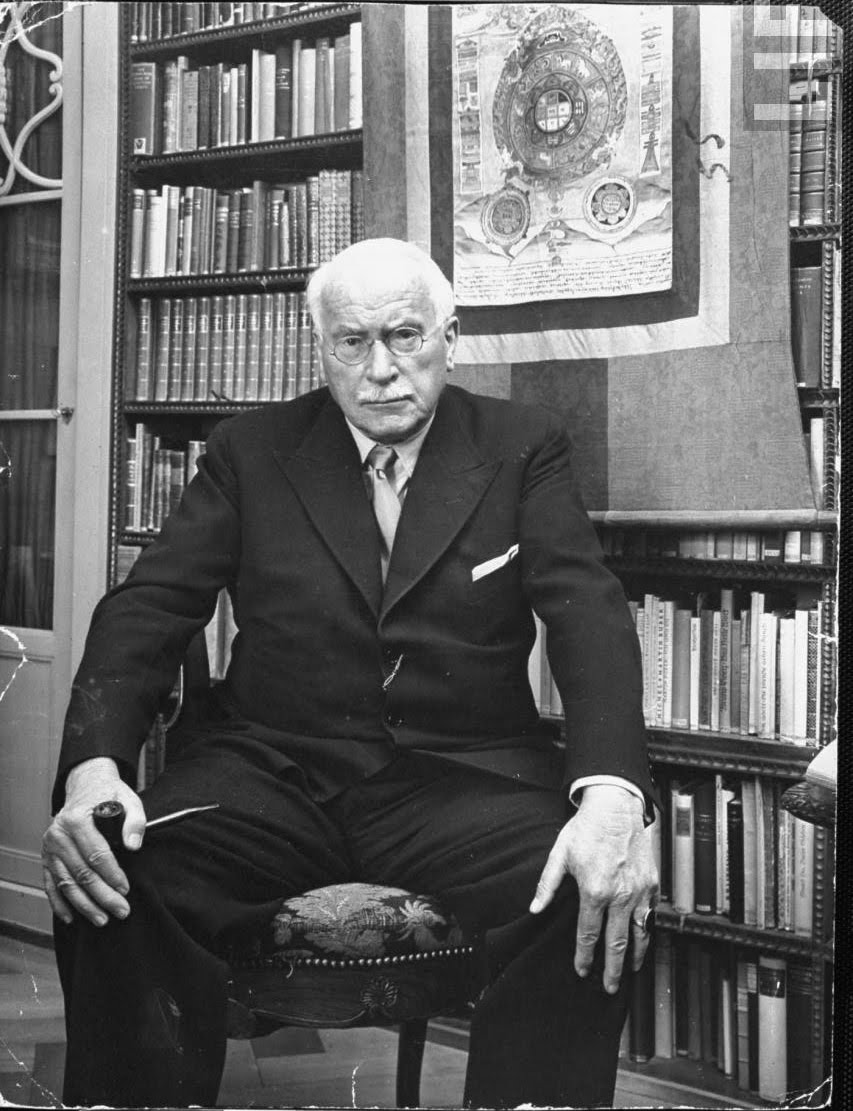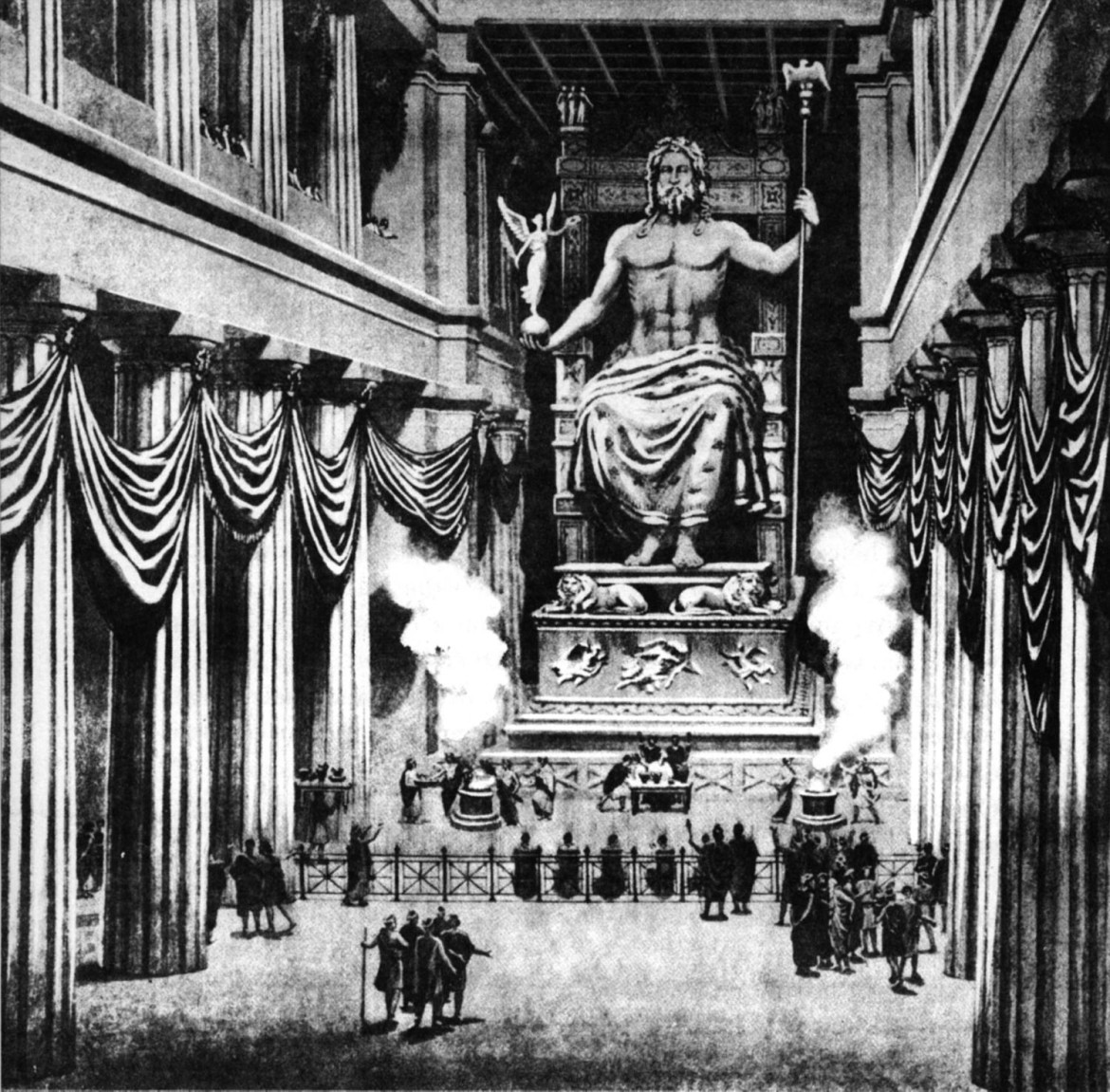J

Dr. Carl Gustav Jung (1875-1961) was a Swiss psychologist, occultist and an pioneer of exploration of mystic symbolism. Jung was born on July 26, 1875 in Kesswil, Switzerland, the only son of a Protestant clergyman. At the age of four his family moved to Basel. There were numerous relatives on either side of his family that were clergymen. It was expected of Jung to continue in the family tradition. Jung did not decide to follow, choosing instead to attend the University of Basel from 1895-1900. Before deciding to pursue medicine Jung studied biology, zoology, paleontology, and archaeology. His explorations did not stop with that; he looked at philosophy, mythology, early Christian literature as well as religion.
His mother, an eccentric woman, spent much of the time in her own separate bedroom, enthralled by the spirits that she said visited her at night. Although during the day he also saw her as predictable, at night he felt some frightening influences from her room. At night his mother became strange and mysterious. Jung claimed that one night he saw a faintly luminous and indefinite figure coming from her room, with a head detached from the neck and floating in the air like a little Moon.
After leaving Basel, Jung became an assistant physician at Burgholzli Psychiatric Clinic under Eugen Bleuler. In 1902 he obtained his M.D. from the University of Zurich. His dissertation was entitled "On the Psychology and Pathology of So-Called Occult Phenomena". Through this work one of his basic concepts is outlined, the underlying wholeness of the psyche. Jung's first research was conducted in 1904. He studied word association in patients. He found groups of repressed psychic content for which he invented the now famous word "complex". This study brought him close to the work of Sigmund Freud. Jung's work confirmed many of Freud's ideas. Between 1907 and 1912 he and Freud worked very close. Many believed that Jung would continue Freud's psychoanalysis, but this did not occur. Over temperamental and differences concerning the significance of sexuality in human life, the two split. Jung contested Freud's analytic principles, which he claimed were one-sided. Their relationship was finished forever when Jung published "Psychology and the Unconscious" which argued against some of Freud's ideas. In 1912 "Symbols and Transformations of the Libido" was published. Jung wanted to understand the symbolic meaning of the contents of the unconscious. In order to distinguish between individual psychology and psychoanalysis Jung gave his discipline the name "analytical psychology."
The unconscious is not just evil by nature, it is the source of the highest good: not only dark but also light, not only bestial, semi-human, and demonic but superhuman, spiritual and, in the classical sense of the word, “divine”. -Carl Jung.
After his break with Freud, Jung began a deepened self-analysis in order to gain all the honesty and firmness for his own journey into discovering the mysteries of the unconscious psyche. During the years from 1913 to 1921 Jung published his important paper: "Two Essays on Analytical Psychology". The "Two Essays" provided the basic ideas from which his later work was developed. He described his research on psychological typology —that there are two basic classifications, or "two types of personalities," in the way they relate to the world: introversion and extroversion. Introversion, in which one has the characteristic of being self-involved, withdrawn, occupied with one's "inner world." Extroversion, in which one relates to the world through social involvement and has interests outside of oneself and is "outgoing." He expressed the idea that it is the "personal equation" which, often unconsciously but in agreement with one's own typology, influences how an individual observes and interacts with their world.
Your vision will become clear only when you can look into your own heart. Who looks outside, dreams; who looks inside, awakes. - Carl Jung.
Next to Jung's typology, his main contribution was his discovery that man's fantasy life has a certain structure. There must be subtle active centers in the unconscious, which control natural behavior and free imagination. These combine to form Jung's concept of archetypes. In order to study archetypal patterns and processes, Jung visited so-called primitive tribes. He lived among the Pueblo Indians of New Mexico and Arizona in 1924 and 1925 and among the inhabitants of Mt. Elgon in Kenya during 1925 and 1926. He later visited Egypt and India. To Jung, the religious symbols and phenomenology of Buddhism and Hinduism and the teachings of Zen Buddhism and Confucianism all expressed differentiated experiences on the way to man's inner world, a world which was badly neglected by Western civilization. He provided commentaries for the Tibetan Book of Dead as well as for Richard Wilhelm’s translations of the I Ching and the Secret of the Golden Flower. Jung also searched for traditions in Western culture, which made up for its one-sided outgoing development toward reason and technology. He found these traditions in Gnosticism, Christian mysticism and, above all, occultism. Some of his major works are deep and clear psychological interpretations of alchemical writings, showing their living significance for understanding dreams and the hidden theme of mental disorders. Jung's interest in philosophy and the occult led many to view Jung as a mystic, although Jung's ambition was to be seen as a man of science. His influence on popular psychology, spirituality and the New Age movement has been immense.
Jung was a prolific writer; his collected works fill 19 volumes. Among his most important books are: Aion, Symbols of Transformation, The Archetypes and the Collective Unconscious, Analytical Psychology, Psychology and Alchemy. Mysterium Coniunctionis was Jung's last book and focused on the "Mysterium Conjunctionis" archetype, known as the sacred marriage between sun and moon.
![]()
Jupiter is the largest planet in the solar system and one of the brightest objects in the night sky. Its equatorial diameter is 11 times the Earth’s diameter and his period of revolution 11.86 years. This planet has 67 moons and the brightest one is Ganymede. Jupiter’s cyclic period of twelve years (approximately) through the circle of the zodiac has a close correspondence with the diurnal and annual motion of the earth round the Sun; and Jupiter is practically a miniature Sun to our physical globe, for it is believed to rule over dimensional space with the tendency to preserve the harmony of our spheres while increasing and expanding the substance in which our earth is moving through space.
In astrology the Jupiter inspires optimism, happiness and abundance. The planet Jupiter is especially related to the magnetic aura, that surrounds every living creature and rules its four divisions in the triplicity of fire, earth, air and water. Everything that is related to expansion, in the growth and development is under the benefic rule of Jupiter, so that his dominion is over uplift, increase, abundance and fullness; giving bliss, happiness and pleasure to all who expand under his mighty power. From the tiniest cell to the whole body and its aura – in some cases extending many feet from the body; in the case of Buddha it is said to have extended three miles – Jupiter’s influence is daily manifesting. To sum up, Jupiter is a representative of the “higher mind” in man, not as pure reason but as innate wisdom, expansive, unifying and harmonizing.
Jupiter the God
Zeus, the son of Cronos, is called the father of gods, the most high and powerful among the immortals and throughout Greece worshipped as the father of gods and men, the ruler and preserver of the world. He was believed to be possessed of every form of power, endued with wisdom and in his dominion over the human race partial to justice and with no limit to his goodness and love. Zeus became the greatest of the Olympian gods and the undisputed master. As the god of light, he was the source of all heavenly manifestations: he caused rain, drought, good waeather; he commanded tempers and greated storms.

Jupiter, the Roman God is the planetary representative of the of the planet; Zeus of the Greeks; Brihaspati of the Hindus; the Scandinavian Thor; Ammon in Egypt; Tishtar of the Persians. Jupiter was regarded as wise, all-knowing and merciful, but as also god of thunder and lightning. He is a symbol of the higher Self; begotten of time (Cronos) and space (Rea). The six children of Cronos and Rhea, are the fundamental principles or planes of manifestation, i.e. Hestia (physical plane), Hades or Pluto (astral plane), Demeter (mental plane), Hera (buddhic plane), Zeus (atmic plane) and Poseidon or Neptunus (monadic plane).
![]()











